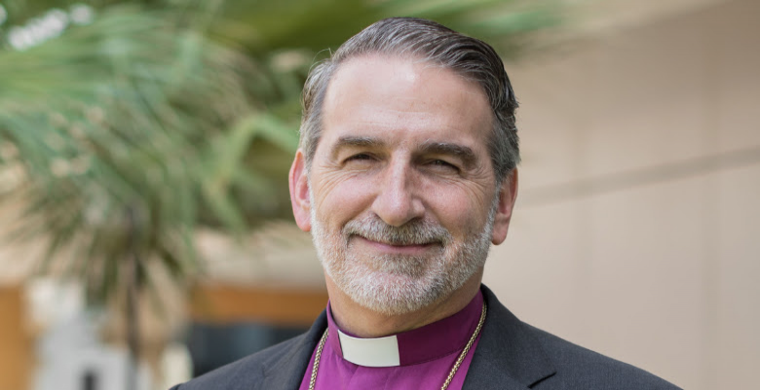GAFCON Chairman blasts "good disagreement" touted by Archbishop Welby
By David W. Virtue, DD
www.virtueonline.org
October 20, 2020
ACNA Archbishop Foley Beach blasted the concept of "good disagreement" touted by the Archbishop of Canterbury in his October letter to GAFCON readers.
While the Anglican Establishment of the West would call us to "get along" and have "good disagreement," even over basic matters of the faith, the Scriptures call us to uphold truth on all matters pertaining to salvation. Our forefathers and mothers in the faith have left us incredible examples of their unwillingness to sacrifice the teaching of the Bible by replacing it with the latest politically correct social or intellectual determination in faith and morals, said the GAFCON chairman.
Welby is desperate to square the circle in an effort to hold the communion together. In fact, his "gospel" is causing Global South and GAFCON bishops to distance themselves from him and the Lambeth Conference with little hope of restoration or unity.
Welby's predecessor, Rowan Williams, tried to square the circle with a failed Covenant. Welby, on the other hand, is not out to find theological agreement, but to learn to live with theological disagreement.
ACNA Archbishop Beach says that's impossible.
"As a result, the Church in the West and Western Anglicanism have declined and decayed away from Biblical Truth and the authority of Scripture. Fortunately, this has not yet totally infected the Global South and the East, but this philosophy is on the move!" he says.
"In the West we have seen in the past 60 years a shift from modernity to post-modernity which has brought a staggering sea-change in the popular conception of truth, and this has had a dramatic impact on our societies. As Pilate asked Jesus before he was crucified: "What is truth?" It now seems that anything can answer this question in the West. Jesus said, "I am the way, the TRUTH, and the life" (John 14.6). Today's post-modern prophets say, "He could be a way, he could possibly have a truth, and everyone needs to discover in their own life what life means for them."
Beach cited the witness of the earliest Christians, which was a message embodied in an immovable faith and moral ethic. "The early Church inhabited a world with many false gods, societal ills, and oppressive rulers. Those early followers of Jesus stood before Caesars, centurions, and persecutions and said, 'Salvation is found in no one else, for there is no other name under heaven given to mankind by which we must be saved.' They faced torture, death, or forced poverty, they refused to deny Jesus and his teaching regarding faithfulness to God and holiness of life. They preached with a boldness about a transcendence above the contemporary ideologies with earthly and eternal consequences."
"Today's Western Anglican crisis of faith is also a societal crisis of faith. What is truth? What matters? Who is God? How do we know him, love him, and walk rightly with him? How do we respond to the ungodliness, immorality, and insidious duplicity going on around us?"
"Paul's litmus test for the faith wasn't good disagreement or getting along, but rather truth. Even when that truth was preached out of mixed motives, the truth is what mattered. Speak the truth in love, (Ephesians 4:15). But preaching the truth is preaching it without compromise. A different Gospel is no gospel at all.
The witness we see in the Scriptures and in church history is that truth produces unity and freedom to love. The clarity of truth is powerful. That truth was revealed in the person and teaching of Jesus Christ. And that truth sets us all free to serve the Kingdom of God and the people of this world," concluded Archbishop Beach.
Unfortunately, neither the Archbishop of Canterbury, nor the House of Bishops, nor anyone else, has produced a clear definition of what is meant by 'good disagreement' and no understanding of the term has ever been agreed by the Church of England. This is a problem because you cannot begin to think about whether good disagreement is a sensible idea unless, and until you know what this term means, noted Anglican blogger Martin Davie.
The term 'good disagreement' is an oxymoron like 'virtuous sin'. Disagreement can never in itself be good. We disagree because in our fallen condition we either don't know the truth, or are unwilling to accept it when it is presented to us. The vocation of the Church is therefore not to practice 'good disagreement.' The vocation of the Church is to be a community where as far as possible disagreement does not exist because truth is known, accepted and celebrated.
Caring for the flock means seeking to prevent the sheep being led astray.
Archbishop Welby is leading the sheep astray, while Archbishop Beach is doing the exact opposite.
END














